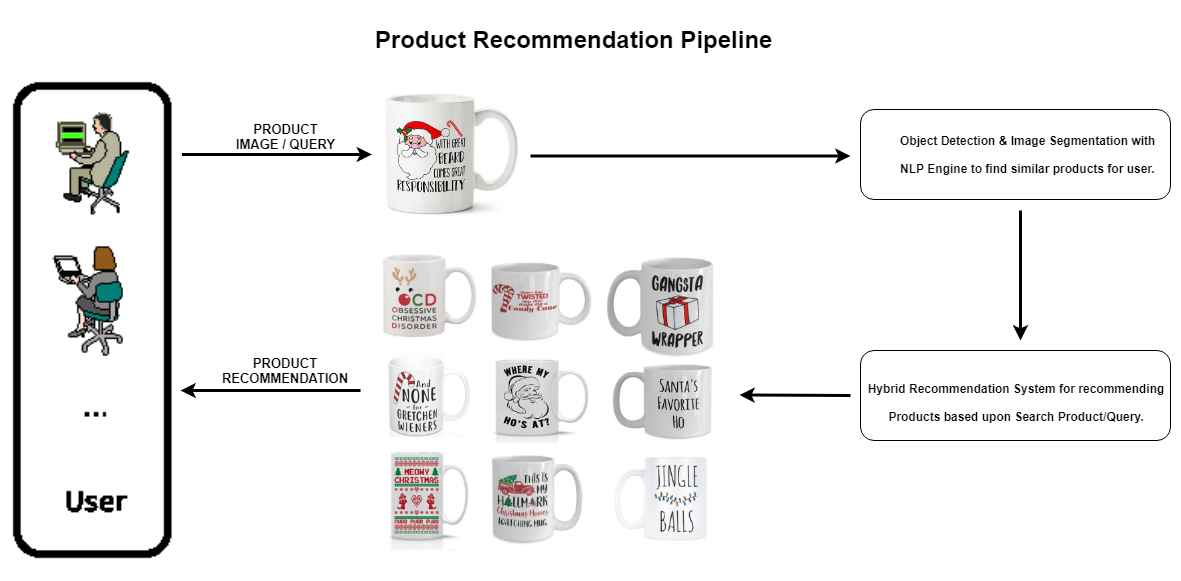
Introduction
Did you know that there would be 5.35 million Hong Kong users expected to be shopping online by 2021? Two years from now, these ecommerce users will be spending “an average of 1021.81 USD online” [1]. These statistics highlight that digital transactions has become the standard method of purchasing goods and services and that this trend will continue to grow in 2019 and beyond. The rapid growth of digital technologies has opened doors to many new opportunities for ecommerce to increase sales and reputation. One of the most significant phenomena is that AI is embedded into many aspects of our everyday lives. From email filters, smart replies to Google predictive searches, AI is just everywhere. In order to explore how AI can enhance brand competitiveness and customer loyalty, this article will examine three AI applications in ecommerce, including chatbot, image search, and smart recommendations.
Chatbot

Chatbots are mainly used to improve customer service, as they are able to “recognize words and phrases in order to deliver helpful content to customers who have common questions” [2]. Chatbots provide 24/7 customer support with highly filtered results and so consumers do not have to wait when they have enquiries. They are built using AI with the ability to collect and store consumers’ past data. As a result, they are able to communicate with human beings, providing a very personalised user experience, and sometimes they can be so accurate that you feel like you are talking to a real person.
Sephora has implemented chatbot to provide real-time communication for customers service enhancement. Before using chatbot, booking rate was low because consumers were unwilling to make reservation phone calls. However, after implementing Facebook messenger bot and Kik bot, Sephora has made booking easier, which attracts more customers and therefore improves sales. This example highlights that Sephora has successfully offered a more efficient booking system by utilizing AI chatbot, and so both customer service and sales have improved.
Image search

Source: https://www.mirror.co.uk/tech/shazam-fashion-asos-releases-iphone-10963180
Larger ecommerce organizations offer catalogues with thousands of goods, but consumers become impatient spending hours searching for the product that they want to buy. They tend to look for the products in the shortest possible time, which raise the question of how to shorten and smoothen the search process.
In fact, AI has enabled search engines to become smarter. In particular, image search allows customers to scan images of products they are interested in. For example, consumers can search for outfits worn by celebrities using images. The ecommerce website will then be able to provide similar and accurate product results. Hence, the right outfit can be found in just one click, which in return ensures that customers can shop at anytime, from anywhere.
ASOS has optimized customer experience by implementing an image search engine developed by Visenze. Consumers always see something around them that they want to buy but they find it difficult to find these products online. Hence, the image search function allows customers to upload a photo of the product and search for the exact or similar products available on the platform. Consequently, ASOS has provided a better product discovery process, enhancing product search efficiency.
Smart recommendations

Source: https://lucky630.github.io/Smart-Recommendation
Ecommerce can utilise AI to gather information about customers’ preferences and buying habits. It can then predict the behaviour of the customer from its past searches, likes, and frequently purchased products. By doing so, ecommerce websites are able to suggest new or related products tailored to the user’s habits. The use of smart recommendations improve and personalise consumers’ shopping experience because users no longer need to spend hours finding the product that they want to buy. This also helps improving sales.
Godiva has applied a real-time product targeting system developed by Reflektion. Online customers often do not receive the same individualized experience that they would get in a physical store. Therefore, Godiva improves its product targeting system through analysing real-time and dynamic data in order to improve online conversion rates. It also offers a more engaging and personalised experience across the website. This example emphasizes that AI applications help improve consumer experience for e-commerce.
Conclusion
Digital technologies have made life easier for both retailers and buyers. In particular, AI applications, including chatbot, image search, and smart recommendations, have played significant roles in providing better ecommerce user experience, and leveraging the sales of ecommerce. Therefore, it is obvious that AI should be implemented in order to enhance brand competitiveness and customer loyalty in such an ambitious and ever-changing market.
References
[1] https://www.eshopworld.com/blog/hong-kong-ecommerce-insights-2017/


 Hide Menu
Hide Menu

